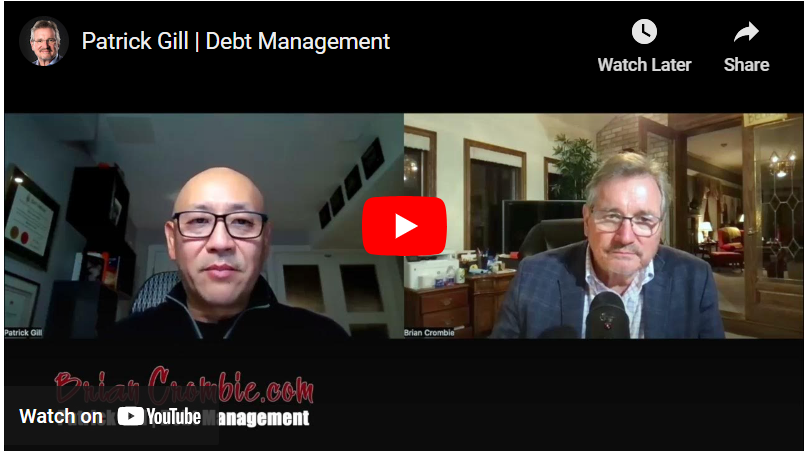Many Canadians are under the assumption their mortgage is as good as done once they have a mortgage pre-approval.
But the truth is a buyer cannot expect a mortgage pre-approval will automatically translate into a mortgage. The lender now needs to consider the property itself, approve all the terms and review the documentation before you transition from pre-approved to approved.
Buyers often do not appreciate there is still some uncertainty when it comes to their mortgage. Unfortunately, once in a while this uncertainty bites back – with calamitous consequences.
Going in Without Conditions in a Hot Market
Not that long ago, when housing supply equalled or exceeded demand, the buyer would insert a clause requesting five business days (usually) to arrange mortgage financing – this is called a “condition of financing.” Even one or two days can make a world of difference.
These days across much of Canada, residential real estate is such a hot commodity it’s more likely offers to purchase will be firm and without a condition of financing.
The process is very skewed in favour of sellers at the moment, and it’s really not a comfortable or fair situation for the buyer. The fact of the matter is homebuyers, especially first-time buyers, are taking this risk every day. In many markets, it’s the only way you will win in a multiple-offer situation.
It is clearly in the buyers’ best interests to know in advance how much mortgage they might qualify for. This is achieved by providing complete information and documents to your bank or mortgage broker and allowing them a deep-dive into your personal finances and credit. They can then underwrite your application upfront.
Even when a thorough review has been conducted, and you are clutching a pre-approval certificate, there are many things that could happen to compromise your home purchase.
Insured Mortgage Approval
Suppose you are in line for an insured mortgage, which is always the case with less than a 20% down payment. Your mortgage approval is technically approved twice – first by the lender and then by the insurer. And please understand that no mortgage insurer has seen your pre-approval request.
The pre-approval considers your personal creditworthiness and borrowing capacity. The actual amount you qualify for also depends on the property itself: that plus the lender and insurer’s assessment of your application. Please remember, pre-approvals do not consider the specific properties.
Reasons Why the Property Can Hurt Your Mortgage Approval
To secure a mortgage, the borrowers and the property have to pass muster. No one knows the exact property you are going to buy when you are pre-approved. When it comes time for the lender to approve your mortgage, there are many ways the specific property can impede the approval.
There are several reasons why a specific property can cause concern. For more information, we defer to Dustan Woodhouse, whose passionate concern for this topic inspired this article and who lists many more here.
- Value of The Home: When multiple buyers are competing on the offer presentation day, there can only be one winner. In this market, the winner often has to bid much more than the market value. When this happens, the appraisal may come back with a value less than you paid. That will not necessarily kill your mortgage approval, as long as you have additional financial resources to cover the shortfall, if necessary. Note: This market does not favour buyers who go in subject-free (firm) with no wiggle room. If you are using all your financial resources to come up with the down payment and closing costs, what can you do if the value comes back lower?
- Property Condition: Have you ever seen an MLS listing that says “as-is” or “handyman special?” Those are red flags to a lender, and a mortgage may not be forthcoming at all. The appraisal may further report poor conditions, mold or even structural issues.
- Property Specifics: There are many reasons a property may prove challenging. Here are some examples of property types that will seem problematic to a lender:
- Log homes
- Homes on leased land, First Nations, government or private
- Rural properties with a hint of hobby farming
- Properties containing asbestos, underground oil tanks, aluminum wiring
- The remaining economic life of the property
- Suppose the property was a one-time grow-op or drug lab. Good luck with that – no matter the price you pay, even if the property has been remediated.
- One property earlier this year had an MLS listing that proudly mentioned a 15-foot fish pond in the backyard – with a fish farm permit. That mortgage was VERY hard to place.
- Location: If a lender feels the property you picked is simply too far from your workplace, they may assume you need to keep a second home or place to stay, and in such cases they impute a “shelter cost” for you. This might also skewer your approval.
- Condos: Mortgage insurers keep lists of condo buildings they do not want to lend against. Maybe the maintenance fees seem extraordinarily high or the condo status certificate reveals significant assessments; for example, something like Kitec Plumbing.
The smaller the condo is means fewer interested lenders. Many lenders simply do not like to lend against micro-condos. Condos under 500 square feet are often a cut-off, but in recent years that number has shrunk to 400 SF or less with some lenders. It might depend if the unit has a separate bedroom. In some of these suites, the bedroom is a wall bed/Murphy bed.
Design Exhibitions
There are new exhibitions at the National Museum every month. Check out what's on when you're in town.
1
2
3
4
5
6
7
8
9
10
11
12
13
14
15
16
17
18
19
20
21
22
23
24
25
26
27
28
29
30
31
1
2
3
4






